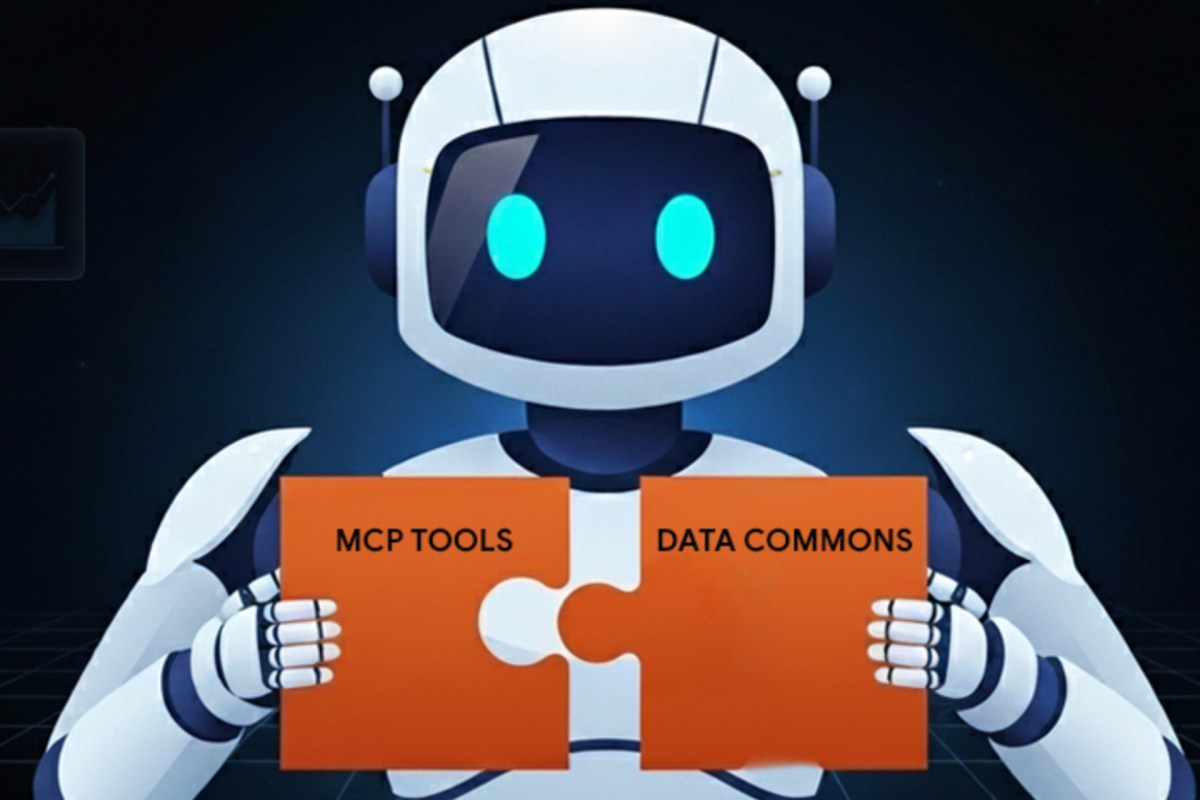Google Launches Data Commons MCP Server to Bring Real‑World Data to AI

Key Points
- Google launches Data Commons MCP Server to provide natural‑language access to public datasets.
- MCP Server builds on Data Commons, which aggregates data from government surveys, local administrations and international bodies.
- The Model Context Protocol, originally introduced by Anthropic, enables AI models to request contextual data without detailed API knowledge.
- Tools like the Agent Development Kit, Gemini CLI, and a PyPI package make integration straightforward for developers.
- Partnership with the ONE Campaign produces the ONE Data Agent, surfacing millions of financial and health data points in plain language.
- The service aims to reduce AI hallucinations by grounding model outputs in verifiable, high‑quality data.
- Open‑industry adoption by firms such as OpenAI and Microsoft signals broader acceptance of the MCP standard.
Google has introduced the Data Commons Model Context Protocol (MCP) Server, a new service that lets developers, data scientists and AI agents retrieve real‑world statistics through natural‑language queries. Built on the company’s Data Commons platform, which aggregates public datasets from government surveys, local administrations and international bodies, the MCP Server aims to provide high‑quality, structured data to improve AI training and reduce hallucinations. The launch follows the adoption of the MCP standard by firms such as OpenAI and Microsoft, and includes tools like the Agent Development Kit, Gemini CLI and a PyPI package for easy integration. A partnership with the ONE Campaign has produced the ONE Data Agent, demonstrating the server’s capability to surface millions of financial and health data points in plain language.
Google Expands Access to Public Data for AI Applications
Google is turning its extensive public‑data repository into a practical resource for artificial‑intelligence systems with the debut of the Data Commons Model Context Protocol (MCP) Server. The service enables developers, data scientists and AI agents to ask natural‑language questions and receive real‑world statistics drawn from a curated collection of public datasets. Data Commons, originally launched in 2018, aggregates information from government surveys, local administrative records and global institutions such as the United Nations, organizing it into a unified, structured format.
The MCP Server bridges this data trove with modern large‑language models (LLMs) by applying the Model Context Protocol, an open industry standard first introduced by Anthropic last November. The protocol allows AI systems to request contextual data without needing detailed knowledge of the underlying data models or APIs, letting the model “pick the right data at the right time.” Companies including Google’s own Gemini, OpenAI and Microsoft have already incorporated the MCP standard into their products.
Addressing AI Hallucinations and Training Gaps
One of the key motivations behind the server is to combat the tendency of LLMs to generate inaccurate or fabricated information—commonly known as hallucinations—when they lack reliable source material. By supplying high‑quality, verifiable data directly from trusted public sources, the MCP Server helps ground AI outputs in factual reality, reducing the need for developers to manually curate large, clean datasets for fine‑tuning. The natural‑language interface also streamlines the integration process, allowing AI developers to focus on model performance rather than on complex data‑access mechanics.
Developer Tools and Early Adoption
Google is providing several pathways for developers to work with the MCP Server. An Agent Development Kit (ADK) is available as a Colab notebook, offering a hands‑on example of how to build an AI agent that queries the server. The server can also be accessed via the Gemini command‑line interface, any MCP‑compatible client using the PyPI package, or directly through code samples hosted on a public GitHub repository. These resources are intended to lower the barrier to entry for teams seeking to incorporate real‑world data into their AI pipelines.
Partnership with the ONE Campaign
The launch includes a practical demonstration through a partnership with the ONE Campaign, a nonprofit focused on economic opportunity and public health in Africa. Together, they created the ONE Data Agent, an AI tool that leverages the MCP Server to surface tens of millions of financial and health data points in plain language. The collaboration began when the ONE Campaign shared a prototype implementation of MCP on its own server, prompting Google’s Data Commons team to develop a dedicated MCP Server for broader use.
Implications for the AI Ecosystem
By making public datasets readily queryable through natural language, Google’s MCP Server could reshape how AI models are trained and evaluated. The service offers a scalable, low‑cost alternative to the traditionally noisy web‑scraped data that many models rely on, potentially leading to more accurate, trustworthy AI applications across sectors such as finance, healthcare, climate research and public policy. As more organizations adopt the MCP standard, the ecosystem may see a convergence toward shared, interoperable data‑access frameworks that simplify AI development cycles.